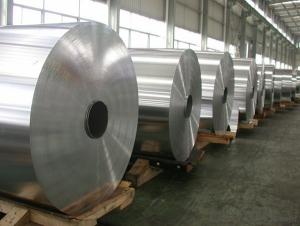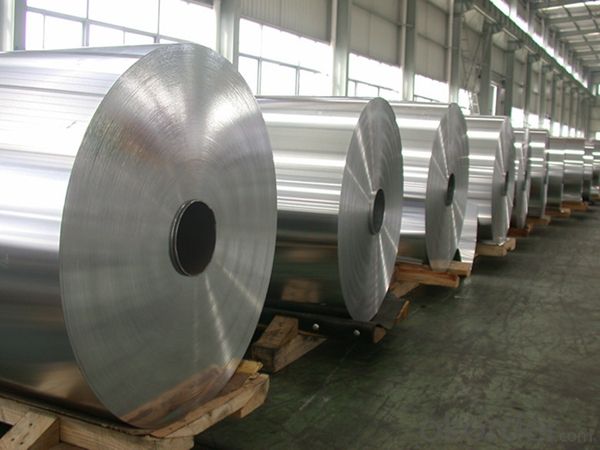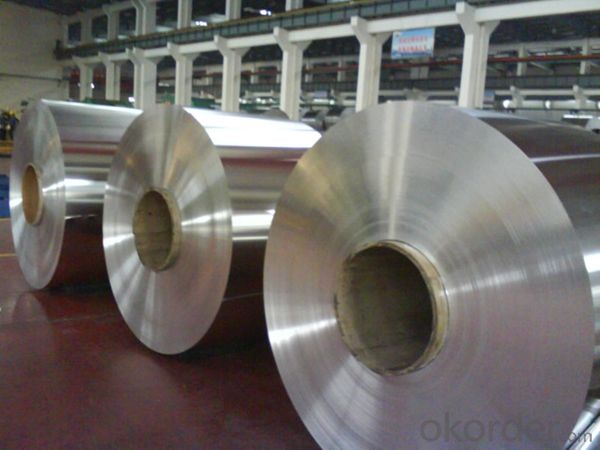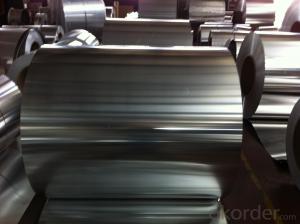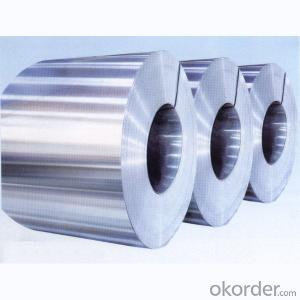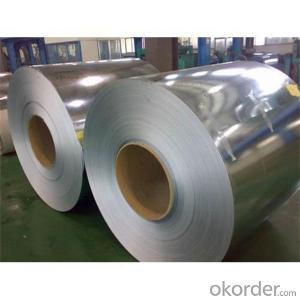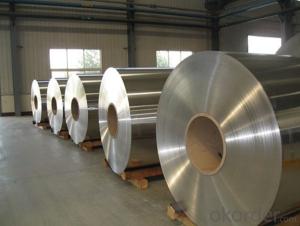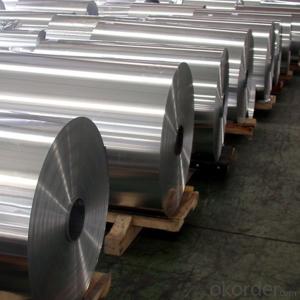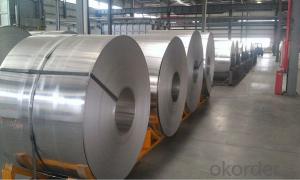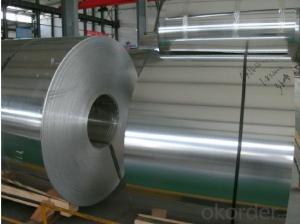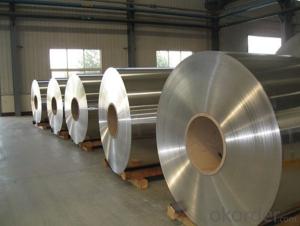Red Aluminum Coil Stock - Hot Rolled Aluminium Coil AA1060 for Building
- Loading Port:
- Shanghai
- Payment Terms:
- TT OR LC
- Min Order Qty:
- 5 m.t.
- Supply Capability:
- 10000 m.t./month
OKorder Service Pledge
OKorder Financial Service
You Might Also Like
Specification
1. Specification of Factory Supply Hot Rolled Aluminium Coil AA1060 for Building
characteristics | Application |
1) Super peeling strength | 1) Building exterior curtain walls |
2) Excellent surface flatness and smoothness | 2) Decoration and renovation additions for old buildings |
3) Superior weather, corrosion, pollutant resistance | 3) Decoration of interior walls, ceilings, bathrooms, kitchens and balconies |
4) Even coating, various colors | 4) Shop door decorations |
5) Fireproof, excellent heat and sound insulation | 5) Advertisement board display platforms and signboards |
6) Superior impact resistance | 6) Wallboards and ceilings for tunnels |
7) Lightweight and easy to process | 7) Industrial materials, materials for vehicles and boats |
2. Application of Factory Supply Hot Rolled Aluminium Coil AA1060 for Building
(1).Interior: wall cladding, ceilings, bathrooms, kitchens and balconies, shutters, doors...
(2).Exterior: wall cladding, facades, roofing, canopies, tunnels, column covers , renovations...
(3).Advertisement: display platforms, signboards, fascia, shop fronts...
3. Feature of Factory Supply Hot Rolled Aluminium Coil AA1060 for Building
• Our goods quality is top, the surface is smooth, and every steel coil
• No Joint, No Bends, no spots, no roller marks.
• MTC will be provided with goods, third part inspection is acceptable, for example, SGS, BV. Etc
Be free from Oil Stain, Dent, Inclusion, Scratches, Stain, Oxide Dicoloration, Breaks, Corrosion, Roll Marks, Dirt Streaks and other defect which will interfere with use
4. Certificate:
SGS and ROHS(if client request, paid by client), MTC(plant provided), Certificate of Origin(FORM A, FORM E, CO), Bureau Veritas and SGS (if client request, paid by client), CIQS certificate
5. Image of Factory Supply Hot Rolled Aluminium Coil AA1060 for Building
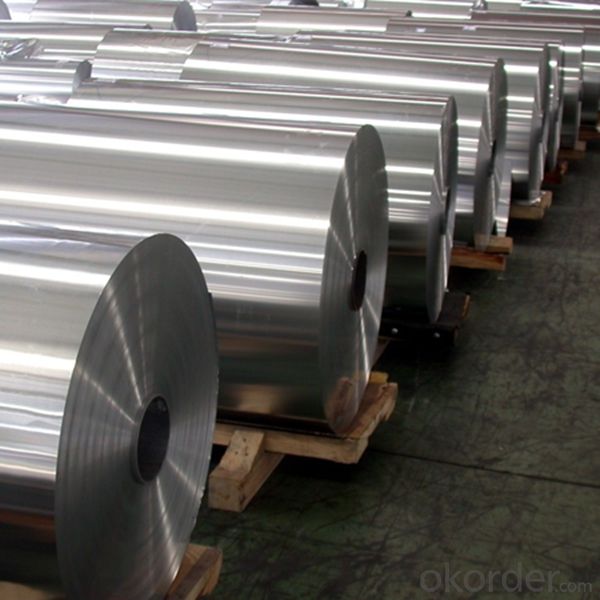
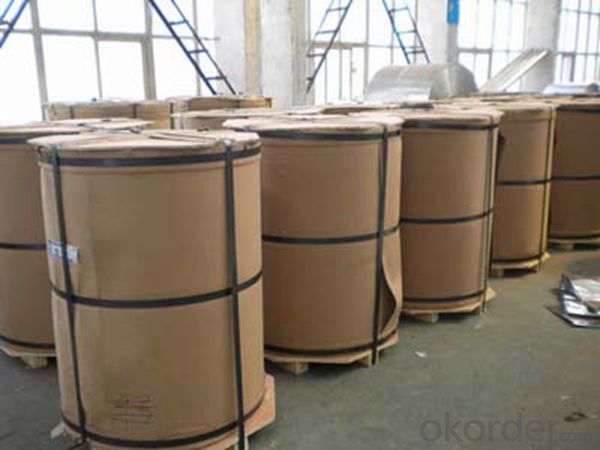
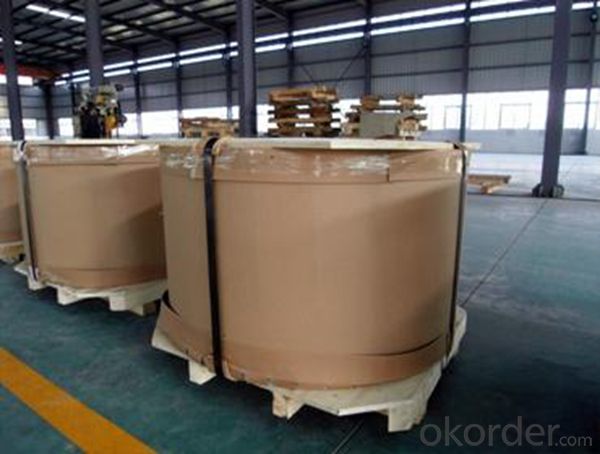
6. Package and shipping of Factory Supply Hot Rolled Aluminium Coil AA1060 for Building
eye to wall
eye to the wall
with wood pallet (wooded case also available)
7. FAQ
1) What is the delivery time?
Dpends on actual order, around 20 to 35 days
2)What is the QC system:
We have QC staff of 20 persons and advanced equipment, each production is with MTC traced from Aluminum ingot lot.
3) What market do you mainly sell to?
Australia, America, Asia, Middle East, Western Europe, Africa etc
- Q: How do aluminum coils contribute to lightweight transportation?
- The inherent properties and versatile applications of aluminum coils make them a significant contributor to lightweight transportation. Firstly, aluminum itself is a lightweight material, with a density one-third that of steel, making it perfect for constructing different transportation vehicle components like cars, airplanes, and trains. In terms of manufacturing aluminum coils, they are typically produced through a continuous casting and rolling process, resulting in a coil shape that is easy to transport and handle. Depending on the specific requirements of the transportation industry, these coils can be further processed into sheets, plates, or other forms. The lightweight nature of aluminum coils offers numerous advantages for transportation. Firstly, it reduces the overall weight of the vehicle, leading to improved fuel efficiency and reduced emissions. Lighter vehicles require less energy to move, resulting in cost savings and environmental benefits. Additionally, the reduced weight allows for increased payload capacity, enabling transportation companies to carry more goods or passengers without exceeding weight limitations. Furthermore, aluminum coils possess excellent corrosion resistance, ensuring the longevity of transportation vehicles even in harsh environments. This durability reduces maintenance and replacement costs, making aluminum a economically viable choice for lightweight transportation. Moreover, aluminum coils offer excellent formability and can be easily shaped into different designs. This flexibility in design allows manufacturers to create aerodynamic structures that further enhance fuel efficiency. Vehicles can be produced with reduced drag and improved performance, contributing to lightweight transportation. In conclusion, aluminum coils are crucial in lightweight transportation as they provide a lightweight, durable, and corrosion-resistant material. Their utilization in various transportation components helps reduce overall vehicle weight, improve fuel efficiency, increase payload capacity, and enhance aerodynamics. As the transportation industry continues to prioritize sustainability and efficiency, aluminum coils will continue to play a significant role in achieving these goals.
- Q: Are aluminum coils suitable for architectural roofing?
- Architectural roofing can benefit from the use of aluminum coils. Aluminum is widely used in construction due to its advantageous properties. Aluminum coils have multiple advantages for architectural roofing. Firstly, aluminum is lightweight, making it easier to handle and install. This is particularly useful for large-scale roofing projects where weight is a significant concern. Moreover, aluminum possesses excellent corrosion resistance. It naturally develops a protective oxide layer that defends against rust and other forms of corrosion. This ensures that aluminum coils are durable and long-lasting, allowing the roofing to endure various environmental conditions over time. Furthermore, aluminum is highly malleable, allowing for easy shaping into different roof profiles and designs. This grants architects and designers greater artistic freedom when creating visually appealing roofing systems. Another advantage of aluminum coils for architectural roofing is their reflective properties. Aluminum has a high solar reflectance, meaning it reflects a noteworthy amount of sunlight and heat away from the building. This aids in reducing cooling costs and improving energy efficiency, making it an environmentally friendly choice. Lastly, aluminum is a recyclable material, further enhancing its sustainability and making it a desirable option for architectural roofing. It can be easily recycled without losing its valuable properties, lessening the environmental impact of the construction industry. To conclude, aluminum coils are indeed suitable for architectural roofing due to their lightweight nature, corrosion resistance, malleability, reflective properties, and recyclability. These attributes make aluminum an excellent choice for roofing projects, offering durability, aesthetic appeal, energy efficiency, and environmental sustainability.
- Q: Why is the hard drive made of aluminum? Why is steel not used, despite being cheaper?
- first I am guessing weight as there are 6 discs in there and just whipping them up to speed of 16000RPM takes some power. And the magnetic factor would play a roll at that speed and you would lose data.. It is not aluminum...it is aluminum alloy. Steel is not cheaper. And as temperatures change the steel would expand more than the aluminum alloy and you would lose your data as it has moved. Just a guess.
- Q: What specific tools are required for handling and working with aluminum coils?
- <p>Working with aluminum coil typically requires specialized tools to ensure safety and efficiency. Essential tools include a coil cutter for precise cutting, a coil car for easy transportation, and a decoiler for unrolling the coil. Additionally, protective gloves and safety glasses are crucial for personal protection. For more complex tasks, a shear machine or press brake may be necessary for shaping the aluminum. Always follow safety guidelines and use the appropriate tools for the job to prevent accidents and ensure quality work.</p>
- Q: Are aluminum coils suitable for coil coating applications?
- Indeed, coil coating applications find aluminum coils to be a suitable option. Aluminum, owing to its outstanding resistance to corrosion, lightweight composition, and impressive strength-to-weight ratio, enjoys extensive usage in coil coating. Moreover, its high malleability facilitates effortless shaping and molding throughout the coil coating procedure. Furthermore, aluminum coils can be coated with an array of paints and coatings, offering a diverse selection of colors and finishes. To sum up, aluminum coils are a favored preference for coil coating applications due to their adaptability, longevity, and visually pleasing attributes.
- Q: Using principles of chemical bonding, explain why solid aluminum is a good conductor of electricity but solid aluminum chloride is not. NaCl has a boiling point of 1413 degrees celcius wheras BrCl has a boiling point of 5 degrees celcius. Account for this difference using chemical bonding and molecular structure.
- Pure aluminium is a good conductor because it's atoms are metalically bonded. This means it's electrons are delocalised and can therefore produce a current. NaCl has a high boiling point because in order to evaporate it first needs to melt. And to melt it you need to break it's lattice structure. Na and Cl atoms are held by strong ionic bonds. BrCl on the other hand is covalently bonded. It's molecular structure does not need to be broken in order for it to melt or boil. All that has to be done is weak van der waal bonds need to be broken.
- Q: Can aluminum coils be used in high-pressure or high-temperature environments?
- No, aluminum coils are not suitable for high-pressure or high-temperature environments as they have lower strength and melting points compared to other materials.
- Q: Can aluminum coils be used in high-radiation environments?
- Aluminum coils can be used in high-radiation environments, but their performance and durability may be affected depending on the level of radiation exposure. Aluminum is a relatively good conductor of heat and electricity, making it a suitable material for many applications, including coil systems. However, when exposed to high levels of radiation, aluminum can become more susceptible to degradation and corrosion. In high-radiation environments, the primary concern is the potential for radiation-induced damage to the material. Aluminum is considered to have relatively low radiation resistance compared to other metals, such as stainless steel or titanium. As a result, prolonged exposure to high radiation levels can lead to structural changes, including embrittlement and loss of mechanical properties. To mitigate these risks, several factors need to be considered. The specific radiation level, duration of exposure, and the intended application of the aluminum coils are critical in determining their suitability for use in high-radiation environments. Additionally, protective coatings or treatments can be applied to enhance the radiation resistance of the aluminum coils, increasing their durability and longevity. Ultimately, the decision to use aluminum coils in high-radiation environments should be based on a thorough assessment of the radiation levels, the potential risks, and the specific requirements of the application. Consulting with radiation experts and considering alternative materials may be necessary to ensure the best performance and safety in such demanding conditions.
- Q: im melting aluminum and what should i use for metal. cans will just oxygenize( i forget the word for it sorry)
- aluminum, in general, will just oxidize if heated in air. it is not just cans that behave that way when they (alcan, alcoa) smelt aluminum industrially they keep it in a reducing environment and do not allow molten aluminum to contact air. so use any aluminum you like but prevent it from contacting air.
- Q: Are aluminum coils suitable for solar panel applications?
- Yes, aluminum coils are suitable for solar panel applications. Aluminum is a lightweight, durable, and corrosion-resistant material, making it an ideal choice for solar panels. It provides excellent heat dissipation, ensuring optimal performance and efficiency of the solar panels. Additionally, aluminum is readily available and cost-effective, making it a popular option in the solar industry.
Send your message to us
Red Aluminum Coil Stock - Hot Rolled Aluminium Coil AA1060 for Building
- Loading Port:
- Shanghai
- Payment Terms:
- TT OR LC
- Min Order Qty:
- 5 m.t.
- Supply Capability:
- 10000 m.t./month
OKorder Service Pledge
OKorder Financial Service
Similar products
Hot products
Hot Searches
Related keywords
